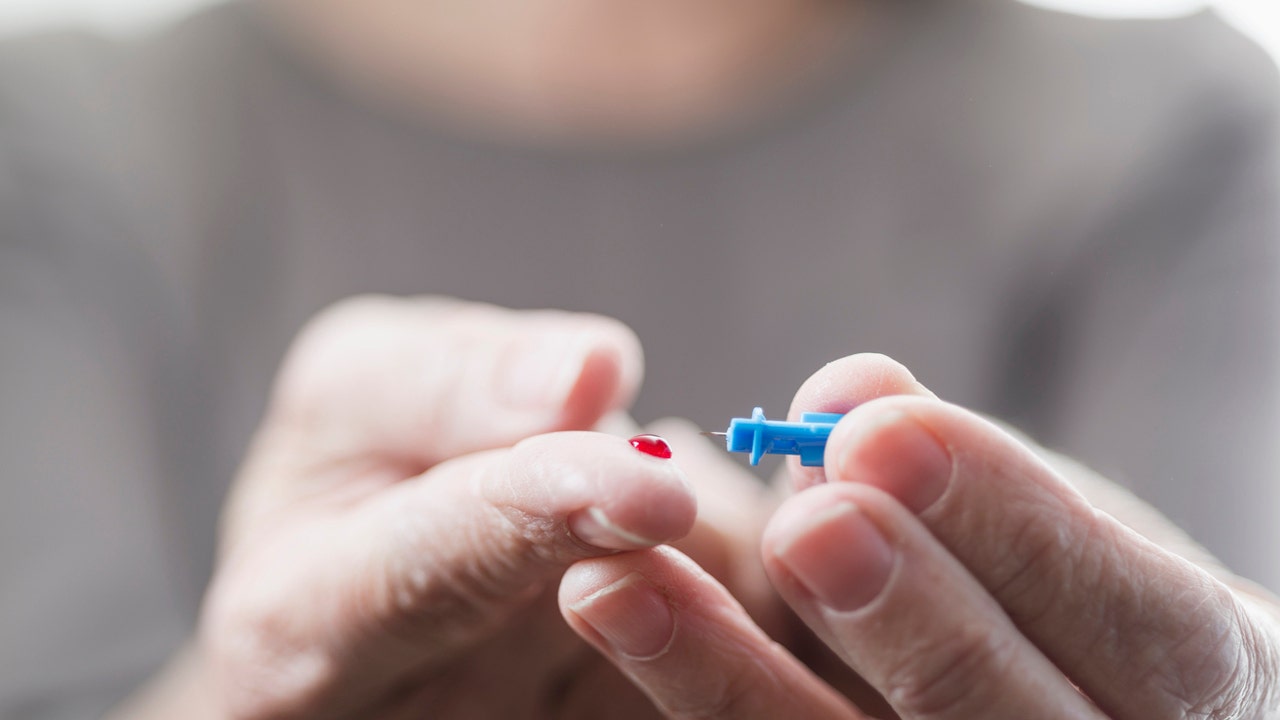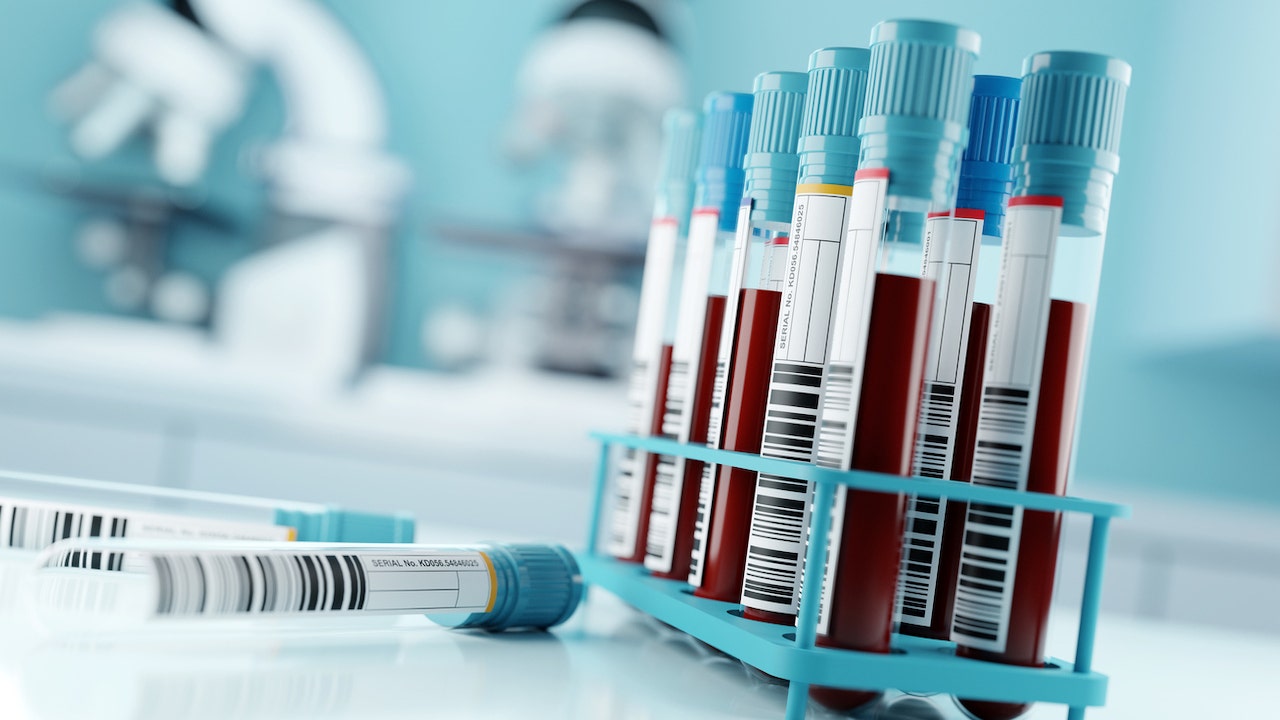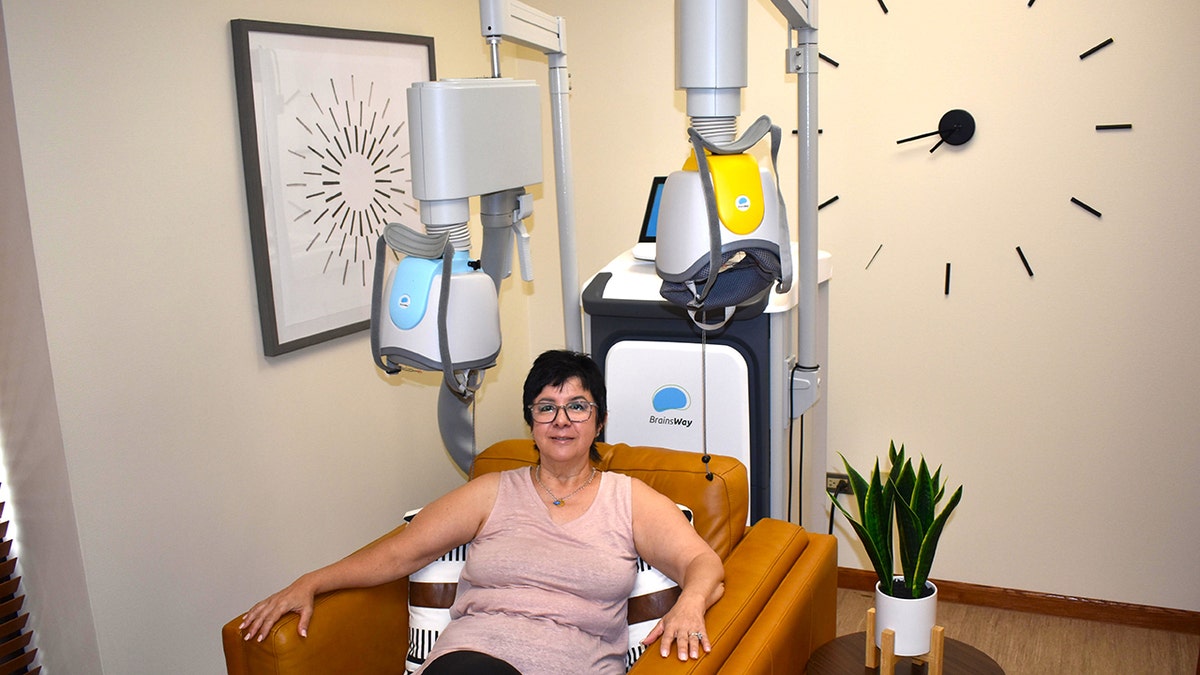Health
Alzheimer’s disease may be detected by a finger prick blood test for earlier diagnosis and treatment

A simple finger prick blood test may help diagnose Alzheimer’s disease, according to research revealed this week at the Alzheimer’s Association International Conference (AAIC) in Amsterdam.
The blood test is similar to the glucose testing method used by people with diabetes. Instead of sugar, however, it measures Alzheimer’s-related proteins in the brain, according to a news release from the Alzheimer’s Association.
The test was more than 80% accurate in identifying dementia-related changes, which was significantly better than doctors who did not have access to the test, a study found.
DEMENTIA PATIENTS WHO TAKE OPIOIDS FACE ‘WORRISOME’ DEATH RISK, NEW STUDY FINDS
An added benefit of the finger prick test: It can be performed at home easily without a lot of preparation or processing, according to Hanna Huber, PhD, of the Department of Psychiatry and Neurochemistry at the University of Gothenburg, Sweden, who conducted a study of the test.
“Currently, use of Alzheimer’s blood tests is limited by the need to visit a clinic, administration by trained personnel, and strict time-limited and temperature-dependent delivery and storage procedures,” Huber said in the release.
A simple finger prick blood test may help diagnose Alzheimer’s disease, according to research revealed this past Wednesday at the Alzheimer’s Association International Conference (AAIC) in Amsterdam. (iStock)
“A method that allows blood collection at home and that is simple enough to be performed independently, or by caregivers, would increase the accessibility of these tests,” she also said.
“It would result in improved early diagnosis and better monitoring of patients considered ‘at risk’ or those who are receiving approved therapies.”
NEW DEMENTIA DRUG ‘HAS GIVEN ME HOPE’: ALZHEIMER’S PATIENTS REVEAL THEIR STORIES
The U.S. Food and Drug Administration (FDA) recently approved a drug that targets an Alzheimer’s-associated beta-amyloid protein in the brain.
Before a patient can receive the treatment, the physician must first confirm the presence of the protein.
This is where the new finger prick blood test could be beneficial, according to Maria C. Carrillo, PhD, chief science officer of the Alzheimer’s Association, who is based in Chicago, Illinois.
“Blood tests — once verified and approved — would offer a quick, non-invasive and cost-effective option,” she said in the news release.

Blood tests could potentially help primary care physicians provide faster and more accurate diagnoses of Alzheimer’s disease, experts say. (iStock)
Currently, blood tests are being used to screen participants in Alzheimer’s drug trials.
In some cases, the tests provide data similar to what’s found in brain scans and analysis of cerebrospinal fluid, the release said.
“While further standardization and validation are needed, blood tests may soon be an important piece of the diagnostic workup in everyday practice for detecting and monitoring treatment of Alzheimer’s disease,” Carrillo said.
ALZHEIMER’S DISEASE IS MOST COMMON IN THESE US COUNTIES, NEW STUDY FINDS
These blood tests could potentially help primary care physicians provide faster and more accurate diagnoses, per the report.
A team of researchers analyzed data from 307 middle-aged to elderly patients at 17 primary care centers in Sweden.
In the study, the primary care physicians provided their diagnoses and suggested treatment after seeing patients in their clinics, where cognitive testing and an MRI or CT scan were performed.
Researchers also took a blood sample that looked for beta-amyloid and phosphorylated tau, which are markers associated with the brain disease.

The blood test can detect amyloid and tau proteins in the blood with an accuracy as good as an amyloid PET scan at a fraction of the cost, a doctor told Fox News Digital. (iStock)
Participants then underwent a thorough clinical examination at a specialized memory clinic.
The physicians correctly diagnosed Alzheimer’s or Alzheimer’s-related changes in approximately 55% of the cases, while the blood test did so in more than 85% of the cases, according to the release.
More than 50% of the people who actually had Alzheimer’s did not receive symptomatic treatment — and 30% of non-Alzheimer’s cases incorrectly received treatment due to incorrect diagnoses.
CANCER BLOOD TEST USING DNA FRAGMENTS BRINGS HOPE FOR EARLIER DETECTION, SAY RESEARCHERS
“Due to the lack of accurate diagnostic tools, it is currently very difficult for primary care doctors to identify Alzheimer’s disease, even among patients with cognitive impairment,” said lead researcher Sebastian Palmqvist, M.D., PhD, of the Clinical Memory Research Unit at Lund University in Sweden, in the release.
“This, too, often leads to diagnostic uncertainty and inappropriate treatment,” he continued. “Blood tests for Alzheimer’s disease have great potential for improving diagnostic accuracy and proper treatment of people with Alzheimer’s.”

The new test was more than 80% accurate in identifying dementia-related changes, which was significantly better than the conclusion of doctors who did not have access to the test, a study found. (iStock)
As new drugs that slow down the disease in its early stages become more widely available, these tests may become even more important, the researcher said in the release.
Dr. Nikhil Palekar, director of Stony Brook Medicine’s Center of Excellence for Alzheimer’s Disease in New York, was not part of the study but attended the conference in Amsterdam.
“This is a major game-changer in diagnosing patients with Alzheimer’s.”
“This is a major game-changer in diagnosing patients with Alzheimer’s,” Palekar told Fox News Digital.
“It’s a simple blood test that can detect amyloid and tau proteins in the blood with an accuracy as good as an amyloid PET scan at a fraction of the cost,” he continued.
“I see blood-based testing to be immensely helpful in early diagnosis, and potentially monitoring the progression of symptoms.”
CLICK HERE TO SIGN UP FOR OUR HEALTH NEWSLETTER
Mary P. of Long Island, New York, who withheld her last name for privacy, has a mother who was recently diagnosed with moderate-stage dementia. The family had to wait for months to see a neurologist and go through testing before getting a diagnosis, she told Fox News Digital.
“I wish we’d had this blood test at the time — maybe we could have started the treatment if we caught it earlier,” she said.
“Now it’s too late for my mother, since the disease has progressed and the drugs aren’t appropriate for her at her current stage.”
She added, “Maybe she’d have a better quality of life now.”

Health
7 important health stories you might have missed this week: Catch up here

Every day of the week, Fox News Digital publishes a range of health pieces to keep you up-to-date on the most important wellness news.
We cover cutting-edge medical research, breakthrough medications, mental health challenges, personal medical dramas and more.
In case you missed them, here are a few of our biggest health stories from this week.
CLICK HERE TO SIGN UP FOR OUR HEALTH NEWSLETTER
You can see a full list of recent health pieces at http://www.foxnews/health.
1. Hunger could be tied to sleep, expert says
If you’re feeling hungrier than usual lately, your sleep routine could be the culprit. A nutritional biologist offers tips for regulating sleep and curbing unhealthy cravings. Click here to get the story.
The food you eat can determine the quality of your sleep, according to experts. Here are the latest findings. (iStock)
2. Health agencies issue bird flu update: ‘Alert, not alarmed’
The CDC and WebMD teamed up this week to deliver an hour-long update on Thursday about the current bird flu outbreak. Fox News Digital breaks down the most important points. Click here to get the story.

Experts assured the public that drinking pasteurized milk remains safe. (iStock)
3. Melanoma patients share their stories
For Skin Cancer Awareness Month, two melanoma patients are speaking up about their symptoms, treatment and prevention tips to help others avoid the potentially deadly disease. Click here to get the story.

Abby Weiner, pictured at left and at right with her husband and sons, was diagnosed with melanoma in Oct. 2023. (Abby Weiner)
4. Report reveals staggering discrepancy in health care costs
Patients with private health insurance could be charged up to 300% more than those with Medicare, a new report reveals. Doctors explain the reasons for the sticker shock. Click here to get the story.

The new report published the names and pricing models of more than 4,000 U.S. hospitals. (iStock)
5. Pastor shares important message about depression
A Dallas pastor who fought his own depression battle shares how he overcame the disease – and why it’s so important for those in church leadership to seek help when they need it. Click here to get the story.

Mark Dance, pictured with his wife, Janet Dance, said he suffered through a three-year period of depression while serving as a pastor. (Dr. Mark Dance)
6. Nurse’s depression is cured through breakthrough tech
A Chicago nurse struggled with COVID-19-related PTSD and depression for years until electrical brain tapping therapy finally gave her a new lease on life. Click here to get the story.

“Had I not had this treatment today, I don’t know where I’d be,” the patient told Fox News Digital. (Melanie Eilers)
7. Young vaper shares warning after nearly dying
A 22-year-old man in Nebraska required a double lung transplant due to vaping. Jackson Allard shares his story as a cautionary tale. “I had a 1% chance to live,” he said. Click here to get the story.

This week’s health stories have included a pastor’s depression journey, the sleep-hunger connection, health care cost discrepancies, bird flu updates and more. (Mark Dance, iStock)
For more Health articles, visit www.foxnews.com/health.
Health
Introducing Our Product Reviews Team, and How We Review | Woman's World

Sign Up
Create a free account to access exclusive content, play games, solve puzzles, test your pop-culture knowledge and receive special offers.
Already have an account? Login
Forgot your password?
Get back to the Sign In
Use left and right arrow keys to navigate between menu items.
Use escape to exit the menu.
Health
What You Should Know About the Military Diet: Experts Weigh In | Woman's World

Sign Up
Create a free account to access exclusive content, play games, solve puzzles, test your pop-culture knowledge and receive special offers.
Already have an account? Login
Forgot your password?
Get back to the Sign In
Use left and right arrow keys to navigate between menu items.
Use escape to exit the menu.
-

 World1 week ago
World1 week agoIndia Lok Sabha election 2024 Phase 4: Who votes and what’s at stake?
-

 News1 week ago
News1 week agoSkeletal remains found almost 40 years ago identified as woman who disappeared in 1968
-

 Politics1 week ago
Politics1 week agoUS Border Patrol agents come under fire in 'use of force' while working southern border
-

 Politics1 week ago
Politics1 week agoTales from the trail: The blue states Trump eyes to turn red in November
-

 World1 week ago
World1 week agoBorrell: Spain, Ireland and others could recognise Palestine on 21 May
-

 World1 week ago
World1 week agoCatalans vote in crucial regional election for the separatist movement
-

 Politics1 week ago
Politics1 week agoNorth Dakota gov, former presidential candidate Doug Burgum front and center at Trump New Jersey rally
-

 World1 week ago
World1 week agoEurope matters to consumers, and so does your vote















